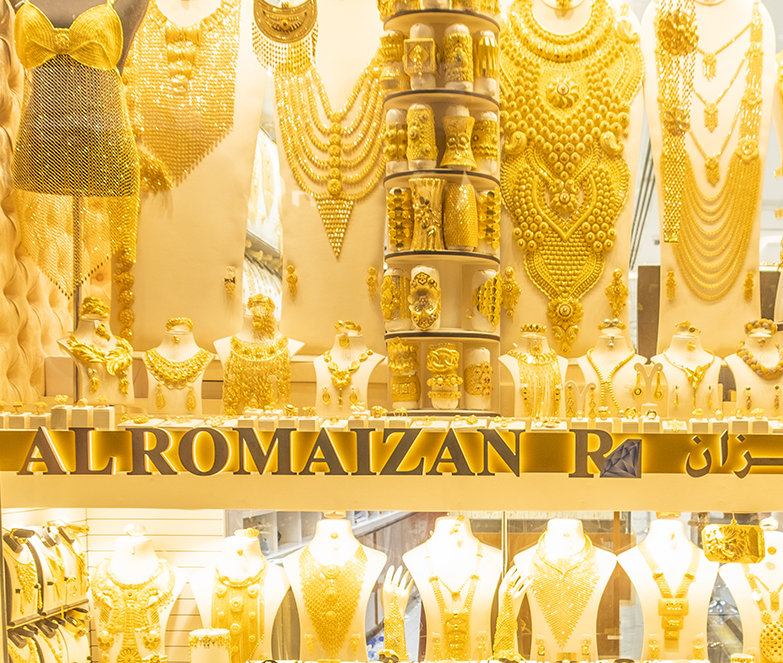Jewellery plays an integral part in social and traditional circles in the Middle East, even more so than most other cultures in the world.
Although the degree of importance and statues symbol are, more or less, the same across the region, and there exists a fair deal of similarity in style and designs, there is still a diverse choice of wear on offer, particularly for that most high profile and glitzy of social events; weddings.
Bridal Gold The social and personal significance of the wedding night to the Middle Eastern bride and her family is reflected in the amount and value of the jewellery adorning the bride on the night of her life, particularly in traditional weddings.
This, of course, means gold, gold, and more gold. Diamonds are more prevalent in the wealthier Gulf region, but even here, gold remains the indispensable item of bridal decoration.
- Other Jewellery
Apart from gold, there is a quite good range of items of traditional Middle Eastern style, some of which are Bedouin, which tend to be larger in design detail and size, and others which uses various ancient shapes and symbols.
These folklore based items are produced and sold across the Arab world from Morocco to Iraq and they are also popular with tourists.
Other than styles based on ancient civilizations (such as Egyptian and Berber) and Bedouin styles, religious words and symbols are also a very common source of inspiration for designs of rings, pendants and earrings, among other items.
Other design influences for Middle Easter jewellery is the classic Islamic Art based on the use of mathematical patterns and famed for their use in history and modern architecture.
Whatever your style or interest you’re sure to find something you like within such a broad range of items which carry such an ancient and deep cultural touch.
By Fuad Mohammed Ali

